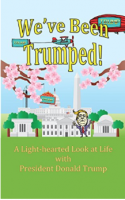As published in “We’ve Been Trumped,” by Darkhouse Books, in September 2016
The revolution began with a Washington Post estimate that, collectively, presidential candidates and their backers spent $25 for each vote cast in 2016. A truck driver, Horace Smith, wrote the editor: “All that money to clutter my TV with attack ads? Just send us the money, please, and give us some peace! I’d sell my vote for $20.”
Posted online, the letter went viral. A HuffPost blogger recalled an old movie whose television anchor urged viewers to shout out their windows, “I’m as mad as hell . . . not going to take this anymore!” Within the month, a half-million people had watched that Network scene on YouTube, and most had updated their Facebook profile pictures with selfies in open windows.
The New York Times, predictably, opposed the idea. “Tammany Hall Redux!” an editorial fulminated. “Ward heelers with ca sh in their pockets?”
sh in their pockets?”
Defenders included libertarians like Rand Paul, an influential Senate voice despite his presidential failure. “Scare tactics!” he scoffed. “Americans have the right to use whatever criteria we want in casting votes. Nothing in the Constitution bars money.”
When President Trump weighed in, the movement became invincible. “Hellbent Hillary set a new record for ugly television,” he said. “I’m the most successful businessman in history, and I say it’s time to apply ordinary business sense to elections.”
Bills to let candidates offer cash incentives for votes were filed in Nevada and Iowa. Both proposed a trade-off: banning robocalls and all television, print and internet advertising. Within weeks, similar bills had been filed in Congress and in most states.
That got the American Civil Liberties Union’s attention. “Buying votes may not be a civil liberties issue,” a spokesman huffed, “but restricting speech would violate the First Amendment.” Billionaires like George Soros and the Koch Brothers supported the free speech argument, but their support proved counterproductive: contributions to the ACLU plummeted.
Eager to avoid court tests, legislators gave their proposed laws titles like “limiting commercialization of electoral campaigns.” There was precedent for curtailing commercial speech. The ACLU retreated.
The billionaires’ intervention, meanwhile, had given politicians another rationale to champion the bills: “Don’t let rich people buy elections.” Incumbents and challengers assured voters that they hated negative advertising, had embraced it only in self-defense, and would welcome new restrictions.
Broadcast, cable and online networks’ opposition was paid little heed; their clout was too diffuse to intimidate legislators. Respected economists across a wide spectrum predicted a boost for the national economy. “People will have extra money in their pockets,” opined the Brookings Institution. “The airwaves will be freed up for goods-and-services ads at lower cost, stimulating buying.” The consensus estimate was a two percent Gross Domestic Product boost .
Major hurdles remained: Candidates wouldn’t pay voters without assurance they would “stay bought.” Silicon Valley giants volunteered, producing an eye-glazing twelve-page online contract. They knew most voters would jump down to click on “I Agree.”
To assure that voters fulfilled their contracts, the cyberwizards established voting through candidates’ websites; their algorithms would examine ballots for the sole purpose of recording votes and qualifying for payment, retaining no personal information. Money earned by voters would be deposited in their bank, Paypal or other accounts through a third-party website that would encrypt all information about which candidate authorized each payment.
Congress adopted new legislation in time for a pilot run in the next U.S. Senate elections. In deference to Citizens United, super-PACs could raise as much as they pleased, so long as all money was channeled to candidates and spent only by them. The identical Senate and House versions were co-sponsored by every member of each chamber.
The new system was tested to resounding public acclaim. All campaigning was barred until July 4, a hugely popular provision. Each candidate was then allowed to send a single monthly text message or e-mail to all voters, inviting them to request detailed information about views and platforms – and to submit bids for their votes. For the few then still without smartphones, tax preparers including H&R Block volunteered to serve as submission stations. Trucker Smith cast his vote that year at his public library.
Votes in tightly contested swing states were more valuable, so the system allowed competitive bidding. In a few hotly contested states, it appeared (the program permitted tracking aggregate amounts stripped of personal information) that most candidates accepted demands up to the $20 maximum established by the new law. In solidly Democratic or Republican states, surveys and polls indicated citizens had to promise their votes for less.
As soon as a candidate accepted a voter’s bid and the online contract was signed, all further text, email or telephone messaging was barred. That provision alone prompted an avalanche of early decisions. Reminders to vote were allowed in the final week.
Letters to editors, Facebook comments, tweets and blog posts soon celebrated the summer’s tranquility. A few complained that television aired a flurry of ads for kitchen utensils, diet pills and similar low-cost merchandise usually seen only in post-Christmas weeks when advertising rates dropped. Most viewers preferred such ads to campaign rhetoric.
November turnout in Senate elections, held that year in twenty states, was a record-breaking 92 percent, even though all candidates spent less than in previous contests. The average contracts had been for $9.45 per vote in safe states, $19.21 in swing states.
As we all know, the new system has now been expanded to Presidential and Congressional races, as well as all state elections. Voters may demand as much as $25 for Presidential votes, no more than $5 in state legislative races. Most decide long before Labor Day, so are unbothered by campaigning until Election Week, although some spend the summer and fall in online dialogue with candidates, pressing their views on hot-button issues. With the airwaves, cyberspace and print swept clean of accusatory advertising to write about, news media focus on issues.
Trucker Smith, whose letter triggered the most sweeping change in American political history, is retired now, but proud of his role.
“Silence,” he told the Post. “It’s wonderful.” He had bought a set of Ginsu knives with his latest election earnings.
-End-





